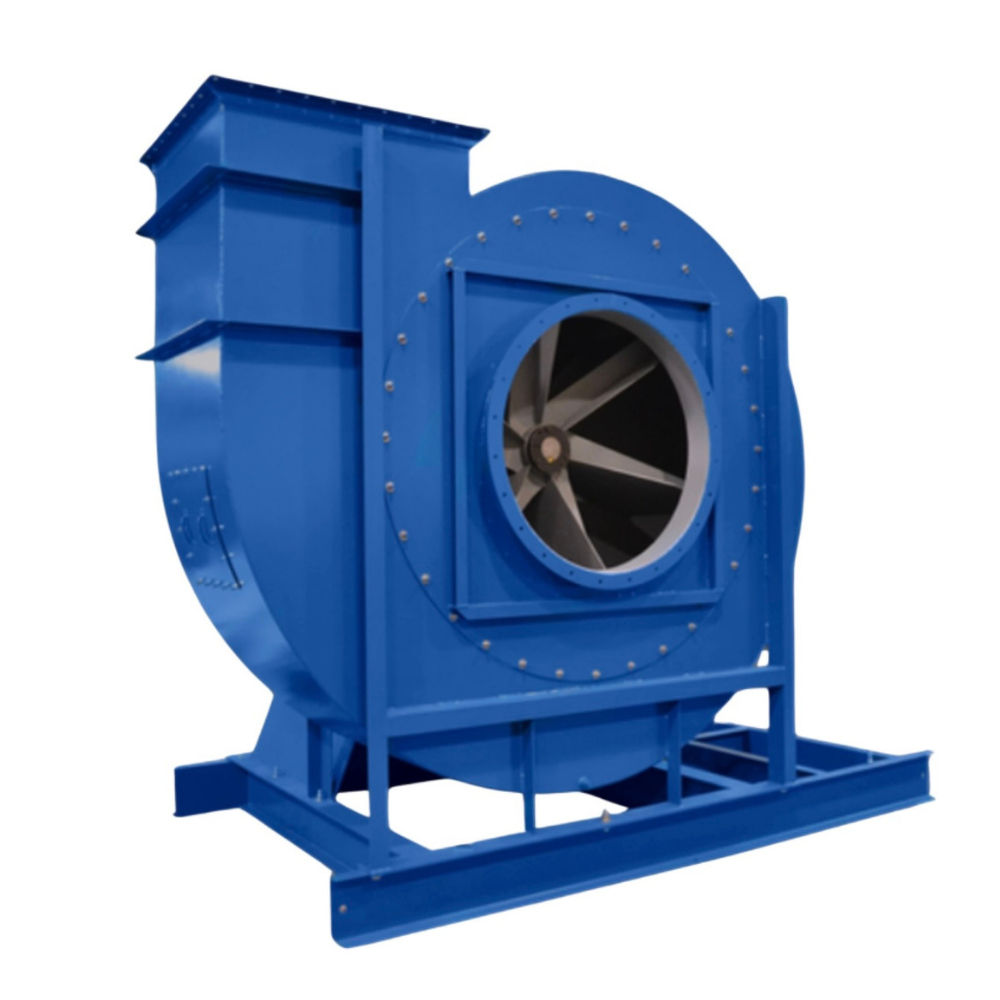What is an Industrial Radial Fan?

Industrial radial fans are an important air moving device used to provide air flow, especially in industrial facilities. These fans are generally preferred in applications requiring high flow and pressure. The operating principle is to increase air flow and provide circulation within the facility by moving the air in a certain direction. The design of radial fans is a structure in which the propellers rotate on a central axis and direct the air flow outwards.
In general, industrial radial fans are effectively used in heating, ventilation and air conditioning systems (HVAC) in the industrial field. These devices can be produced in capacities that can meet different application requirements while providing homogeneous air flow in a wide area. These fans, which have versions for both industrial and commercial applications, are also of great importance in terms of energy efficiency for businesses.
What is the Working Principle of an Industrial Radial Fan?
Industrial centrifugal fans are mechanical devices that use a central impeller to create airflow. These fans push air outward through the impeller blades, which are rotated by the motor. Air enters the center of the fan and is rapidly pushed outward by the rotation of the impeller, creating a thrust force.
What are the Usage Areas of Industrial Radial Fans?
Industrial radial fans are highly efficient air handling systems designed for different applications in various sectors. The areas of use of these fans are wide-ranging and are summarized under some important headings below:
- Ventilation Systems
- Heating and Cooling Systems
- Industrial Production
- Dust Control
- Agriculture Sector
- Fire Safety
As a result, industrial radial fans fulfill a critical function in various industrial applications. These fans must be selected and used according to the specific needs of each sector. With correct use, both energy savings and work safety are increased.
Advantages and Disadvantages of Industrial Radial Fans

Industrial radial fans are important air movement devices used in many areas. However, they have advantages and disadvantages depending on the areas of use and needs. In this section, we will discuss the prominent advantages and potential disadvantages of industrial radial fans.
Advantages
- High Efficiency
- Durability
- Low Noise Level
- Good Air Distribution
- Easy Maintenance
Disadvantages
- High Start-up Cost
- Size and Weight
- Energy Consumption
- Air Need
Things to Consider When Choosing an Industrial Radial Fan
There are many factors to consider when choosing an industrial radial fan. These factors directly affect the efficiency of the fan and its suitability for the application area. Here are the main factors to consider in this process:
- Airflow Capacity
- Pressure
- Sound Level
- Energy Efficiency
How to Maintain an Industrial Radial Fan?
Regular maintenance is required for industrial radial fans to operate efficiently and extend their life. Maintenance operations directly affect the performance of the fans, increasing energy efficiency and preventing malfunctions. Here are some important points to consider when maintaining industrial radial fans:
- Cleaning
- Lubrication
- Working conditions
- Engine Control
- Internal Component Control
All these maintenance operations will ensure the safe operation of the industrial radial fan, while also reducing energy consumption and extending the life of the fan. Therefore, maintenance plans should be created and implemented on time.

